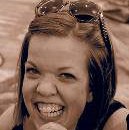- A
- A
- A

Women with disabilities are three times as likely to be raped, physically abused or sexually assaulted.
70-80% of people with psychiatric disabilities and 40-80% of people with intellectual disabilities experience their child (ren) being removed from their custody
Young people ages 31 to 64 with a disability now make up the fastest-rising proportion of nursing home residents.
With headlines such as these, why would anyone want to identify as having a disability? These types of statistics are ones that none of us want to be a part of.
Adding “disabled” to your identity is sometimes tough for people and those people often don’t get why anyone would “want” to attach themselves to such statistics. For them, it seems as though you’re giving in and admitting your weakness. Isn’t it easier to just pass as nondisabled, than to tie your name to a group of people that are systemically oppressed and, thus, risk also being oppressed? For employment, dating, and financial reasons, it’s safer to distance yourself from disability identity than it is to embrace it. And, for a second, I can see this perspective.
Ultimately though, for me, claiming my body as disabled is about community and justice.
I have done some soul searching and examined my views several times over, and each time I come back to the same conclusion: I love the body I am in and wouldn’t change it if I could. However, I get plenty of messages from society that tell me my body is different and, thus, somehow less than or bad. However, over and over again, like the feeling of going home for the holidays, I find the disability community to be where I fit-in best. I relish in the opportunity to discuss the ableist nonsense and the ways in which we can change it. My body has given me a cause to fight for and all I have to do is look-around to see where there’s still room for improvement. There is power in numbers and identifying as part of a minority group will only give it a little more power and a little more voice. After all, if you’re going to be rabble rousing, it’s way more fun to be doing it with others than alone.
For me, openly identifying as disabled is also about justice. When I see statistics such as the ones above, I am horrified. If we live in a time when woman with disabilities are three times as likely to be raped, physically abused or sexually assaulted, then, by all means, let me be in solidarity with these women by claiming my disability as an act of resistance. Let me be clear, I fully understand that claiming that I have a disability is not going to directly stop rape from happening. I understand this. However, what it will do is allow me to be in solidarity with the women that are in this statistic, so they know they are not alone- because, I’m positive, the last thing you want if you have had this horrific experience, is to hear someone trying everything they can to say they are not “one of those people.” With more than 48.9 million people in the United States having a disability, ‘we’ are one of those people and, collectively, we can change these data. But, ending violence such as this has never happened by distancing yourself from the group. We must fight this together- and I know no better way of doing this than proclaiming a disability identity.
Systemic oppression and disadvantages of disabled people are everyone’s problem and will take all of us to solve, disabled and nondisabled alike. So, claim your body for all that it is and let’s get to work.
Leah Smith is a writer, communications professional and disability advocate. Leah holds a Bachelor’s in Public Relations and a Masters in Public Administration and Policy. She has focused her career on creating access and equality for all. Leah currently resides in Philadelphia with her partner and two dogs.